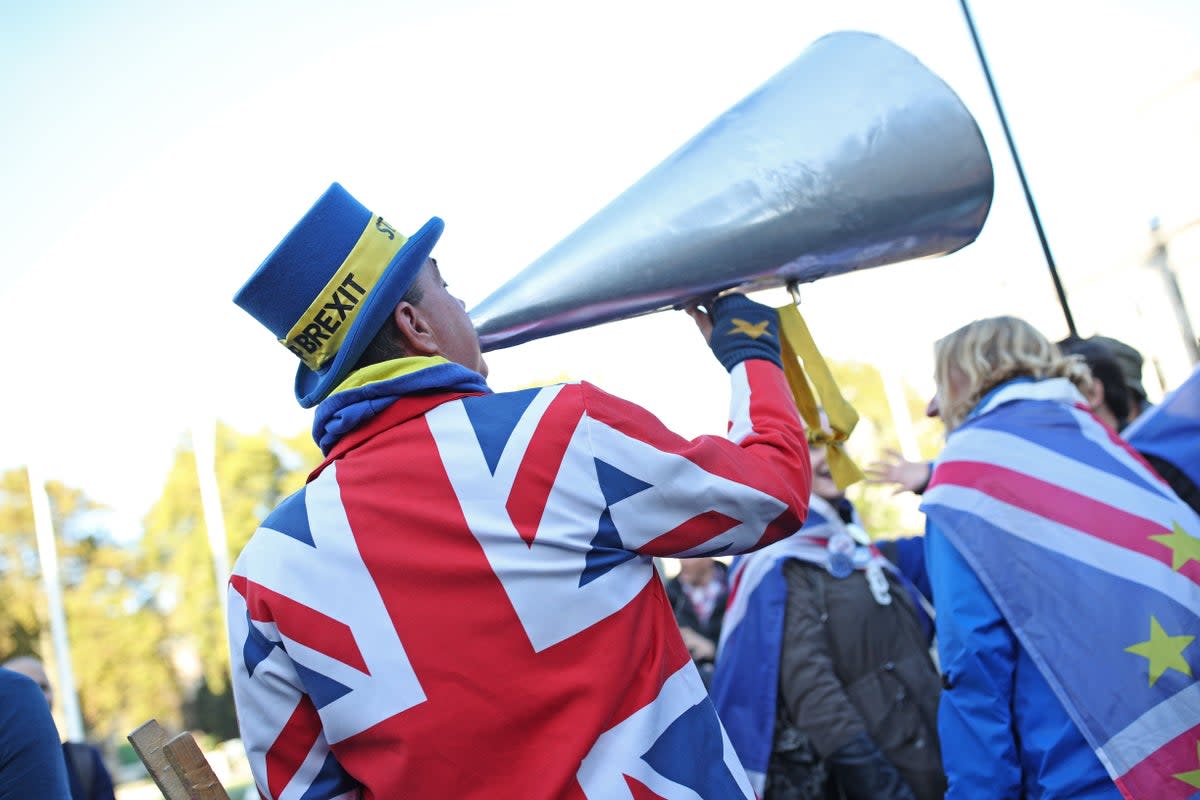OPINION - Labour will need to do more than offer the 'Cakeism of Remainers'

On the same day Arsenal defeated Manchester United on penalties to win the 2005 FA Cup final, David Foster Wallace delivered perhaps the most celebrated commencement speech of modern times. Standing in front of graduating students at Kenyon College, Ohio, he opened with a joke:
"There are these two young fish swimming along and they happen to meet an older fish swimming the other way, who nods at them and says 'Morning, boys. How's the water?' And the two young fish swim on for a bit, and then eventually one of them looks over at the other and goes, 'What the hell is water?'"
Wallace went on to explain that the point of what he called "the fish story" is that "the most obvious, important realities are often the ones that are hardest to see and talk about". But the fact is that "in the day-to-day trenches of adult existence, banal platitudes can have a life or death importance." And with that, I'm sorry to say, we turn to Britain's exit from the European Union.
It is a reality that still creates challenges for every major party because of where the public are at. A recent YouGov poll found that more than half of Britons think the negatives of Brexit have outweighed the positives, with just 15 per cent taking the opposite view. Consequently, the Tories – the party of Brexit – are loathe to talk about it.
Labour is similarly quiet on the subject. Partly because it wants to win over Leave voters, but also because few voters seem to care. Brexit was listed as the single most important issue facing the country from July 2016 until February 2020. Today, it lies below the economy, healthcare, immigration, housing and so on. Like water – and unless you're going on holiday or trying to export chemicals – Brexit just kind of... is.
But therein lies the opportunity. In an interview over the weekend, Rachel Reeves committed a bit of news. Speaking to the Financial Times, the shadow chancellor suggested a Labour government "would look to improve our trading relationship with Europe" including a "bespoke" arrangement for the chemicals sector. To underline this subtle but definite shift, Keir Starmer has described the current Brexit deal as "botched" and an "inhibitor on growth".
Before we go any further – and I'm conscious we've already taken the scenic route to get here – we need to discuss what I like to call (but probably stole from the FT's Peter Foster) the 'cakeism of remainers'. That is, the refusal to accept that wanting to stay outside of the EU's single market and customs union severely limits what closer relationship London can conceivably negotiate with Brussels.
Moreover, negotiations require two willing parties. The EU is frankly quite busy with the rise of far-right parties, cheap electric vehicle imports from China and migration on its southern and eastern borders – we ought not to assume member states are desperate to negotiate a substantially new Brexit deal.
Still, if Keir Starmer wants to unleash economic growth, he is going to have to upset some people. On planning reform, that means incumbent homeowners. On trade friction, that means those who voted Leave or simply never want to discuss the subject again.
The trick for a Labour government will be to negotiate better terms while keeping Brexit's salience low. When voters don't care or don't notice, governments with large majorities can do what they like.
Of course, the real benefits accrue from rejoining the EU, not being a rule-taker and nibbling around the edges. But perhaps that's a second term sort of thing.
This article appears in our award-winning newsletter, West End Final – delivered 4pm daily – bringing you the very best of the paper, from culture and comment to features and sport. Sign up here.

 Yahoo News
Yahoo News 